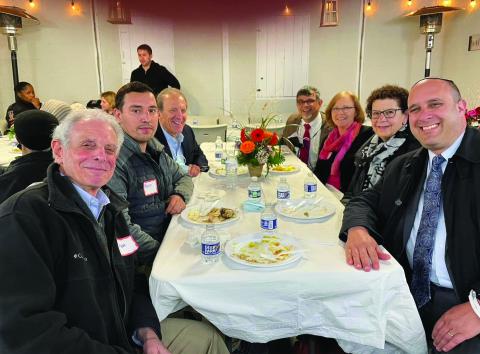
Photo by Pop Nukoonrat | Dreamstime.com
I was driving home, after the result of my first visit to the Memory Clinic. I had “a mild cognitive impairment.”
I knew at once, at age 81, that I had started on my final journey. I had accompanied two friends who had suffered loss of memory long before dying in a hospital of dementia-related complications.
As I drove along, it came to me that I could meditate on the three final prayers of Jesus on the cross. The first of these is “Father, forgive them for they know not what they do” (Lk 23:34). I spent some time adding up how many people Jesus had to forgive.
But just before I sat down for my first meditation, I thought to myself, “This will be rather dull as I have no one to forgive.” And then came an inspiration: “You can forgive your forgets!”
What a blessing that turned out to be. Instead of feeling down with “every forget”—of which there were, and are, many—I could, and did, forgive myself, and was uplifted!
With oncoming dementia, I felt myself increasingly left out of conversations. Visitors, for various reasons, called at our house and spoke to my wife, said hello to me and then kept talking to my wife.
I listened but felt left out. One reason was that with the onset of dementia I have no responsibilities and could not be expected to answer any questions or confirm any plans.
Nevertheless, being left out felt like darkness. It was an experience of Jesus on the cross, who cried out, “My God, My God, why have you forsaken me?” (Mt 27:46). In that moment, he didn’t feel accepted and loved, just the same emotions I was wrestling with.
So I made an effort to transform my resentment and to continue to love. Now, after a few more experiences with this attitude, I can accept those kinds of situations and feel much happier.
I had been looking forward to a visit from our younger son. At his last visit he showed he had become a skilled craftsman, and there were two jobs in the house waiting for him. I had planned to watch him deal with both.
As it turned out, I had to leave the house just as he was starting one job, and when I asked about the other, he had already done it! I admit I was disappointed that he didn’t wait for my return but said nothing.
The following morning, I was pondering what I had missed. In the face of hurt, disappointment or anger, I understood that I needed to embrace this suffering “always, immediately and with joy!”
I am glad that even if my memory fades, God sees me and helps me remember what matters most to deal with these situations, turning them into an opportunity to start again and love.
S. H., England
.












